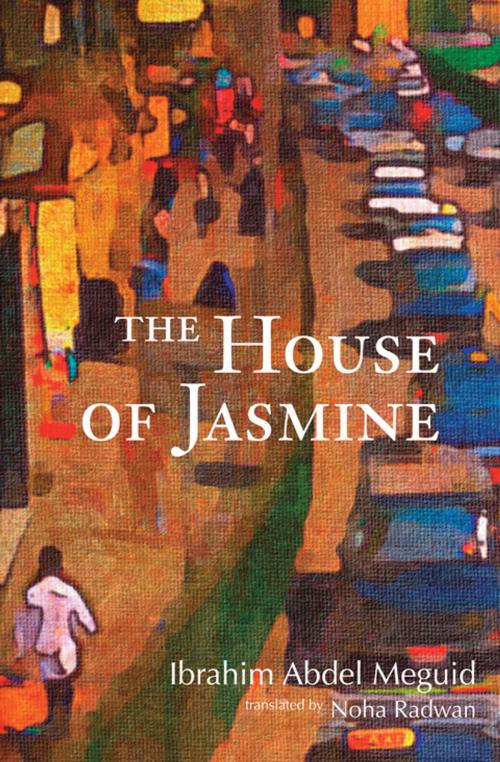| Author: | Ibrahim Abdel Meguid | ISBN: | 9781623710170 |
| Publisher: | Interlink Publishing | Publication: | December 28, 2012 |
| Imprint: | Interlink Books | Language: | English |
| Author: | Ibrahim Abdel Meguid |
| ISBN: | 9781623710170 |
| Publisher: | Interlink Publishing |
| Publication: | December 28, 2012 |
| Imprint: | Interlink Books |
| Language: | English |
On June 13, 1974, Shagara, a low-level employee at the Alexandria shipyard, is charged with taking workers to cheer for the motorcade of Egyptian President Sadat and his guest President Nixon. Instructed to pay each worker half a pound at the end of Nixon’s visit, Shagara pays them half that, spares them the festivities, and pockets the difference. So begins The House of Jasmine, which follows Shagara, a loner who yearns for female companionship, as he traverses the city of Alexandria and tries to parse his feelings toward its changing landscape. With moving candor and refreshing humor, The House of Jasmine is Shagara’s intimate account of life in the Sadat era-the comic and the tragic, the surreal and the absurd.
Within the humor of this novel is nestled an indicting eyewitness account of this essential period of Egyptian history. Abdel Meguid has invented a narrative form that is highly effective in capturing the absurdity of social and political life in Egypt during the seventies,” as one critic has written. In his classic work The House of Jasmine, one can observe the social changes and popular sentiments that comprise the prologue for the Egyptian revolution of January 2011.
Within the humor of this novel is nestled an indicting eyewitness account of this essential period of Egyptian history. Abdel Meguid has invented a narrative form that is highly effective in capturing the absurdity of social and political life in Egypt during the seventies,” as one critic has written. In his classic work The House of Jasmine, one can observe the social changes and popular sentiments that comprise the prologue for the Egyptian revolution of January 2011.
On June 13, 1974, Shagara, a low-level employee at the Alexandria shipyard, is charged with taking workers to cheer for the motorcade of Egyptian President Sadat and his guest President Nixon. Instructed to pay each worker half a pound at the end of Nixon’s visit, Shagara pays them half that, spares them the festivities, and pockets the difference. So begins The House of Jasmine, which follows Shagara, a loner who yearns for female companionship, as he traverses the city of Alexandria and tries to parse his feelings toward its changing landscape. With moving candor and refreshing humor, The House of Jasmine is Shagara’s intimate account of life in the Sadat era-the comic and the tragic, the surreal and the absurd.
Within the humor of this novel is nestled an indicting eyewitness account of this essential period of Egyptian history. Abdel Meguid has invented a narrative form that is highly effective in capturing the absurdity of social and political life in Egypt during the seventies,” as one critic has written. In his classic work The House of Jasmine, one can observe the social changes and popular sentiments that comprise the prologue for the Egyptian revolution of January 2011.
Within the humor of this novel is nestled an indicting eyewitness account of this essential period of Egyptian history. Abdel Meguid has invented a narrative form that is highly effective in capturing the absurdity of social and political life in Egypt during the seventies,” as one critic has written. In his classic work The House of Jasmine, one can observe the social changes and popular sentiments that comprise the prologue for the Egyptian revolution of January 2011.















